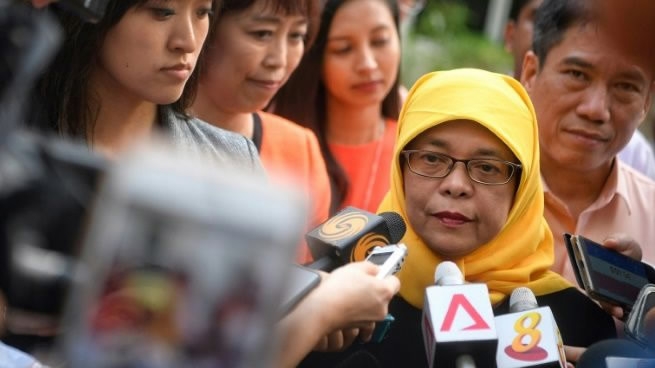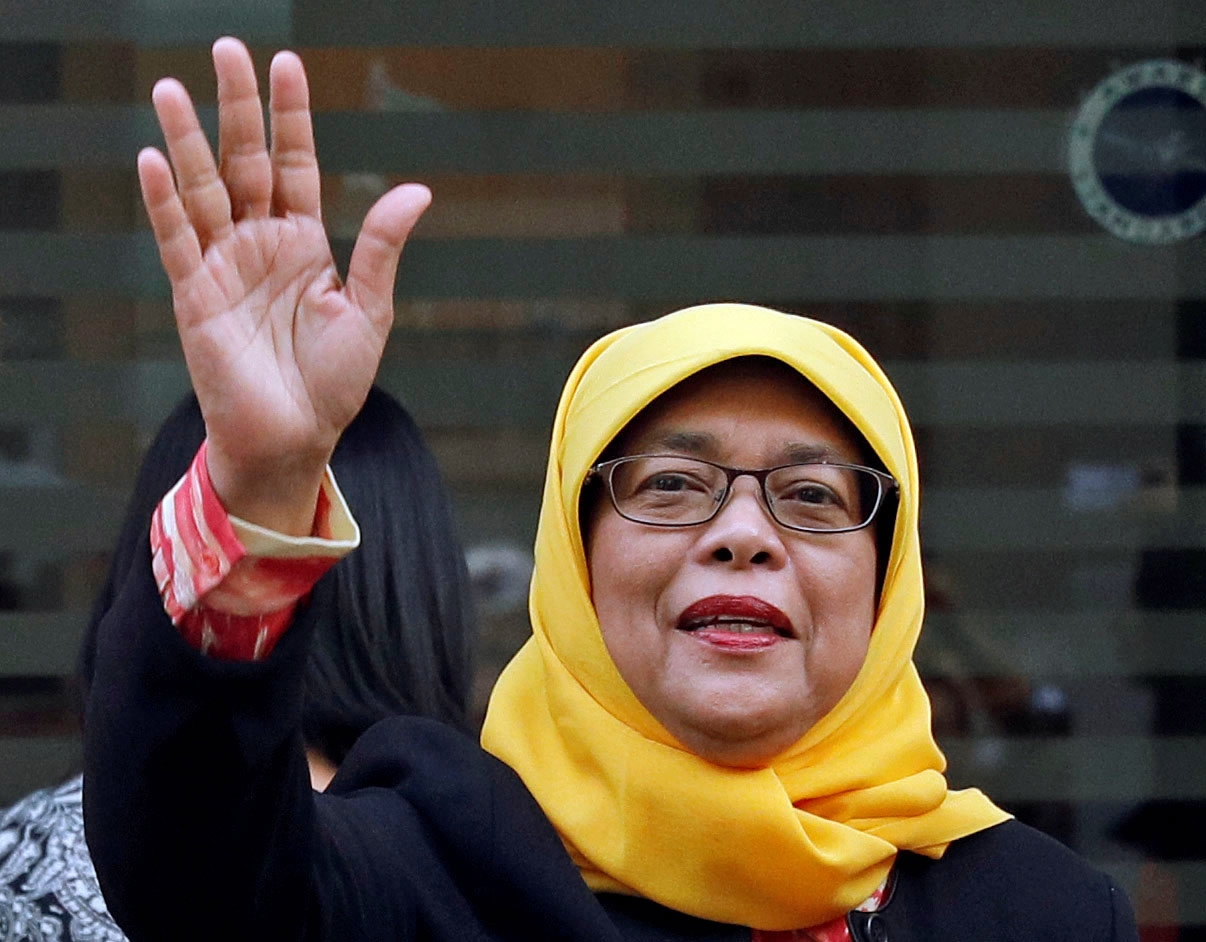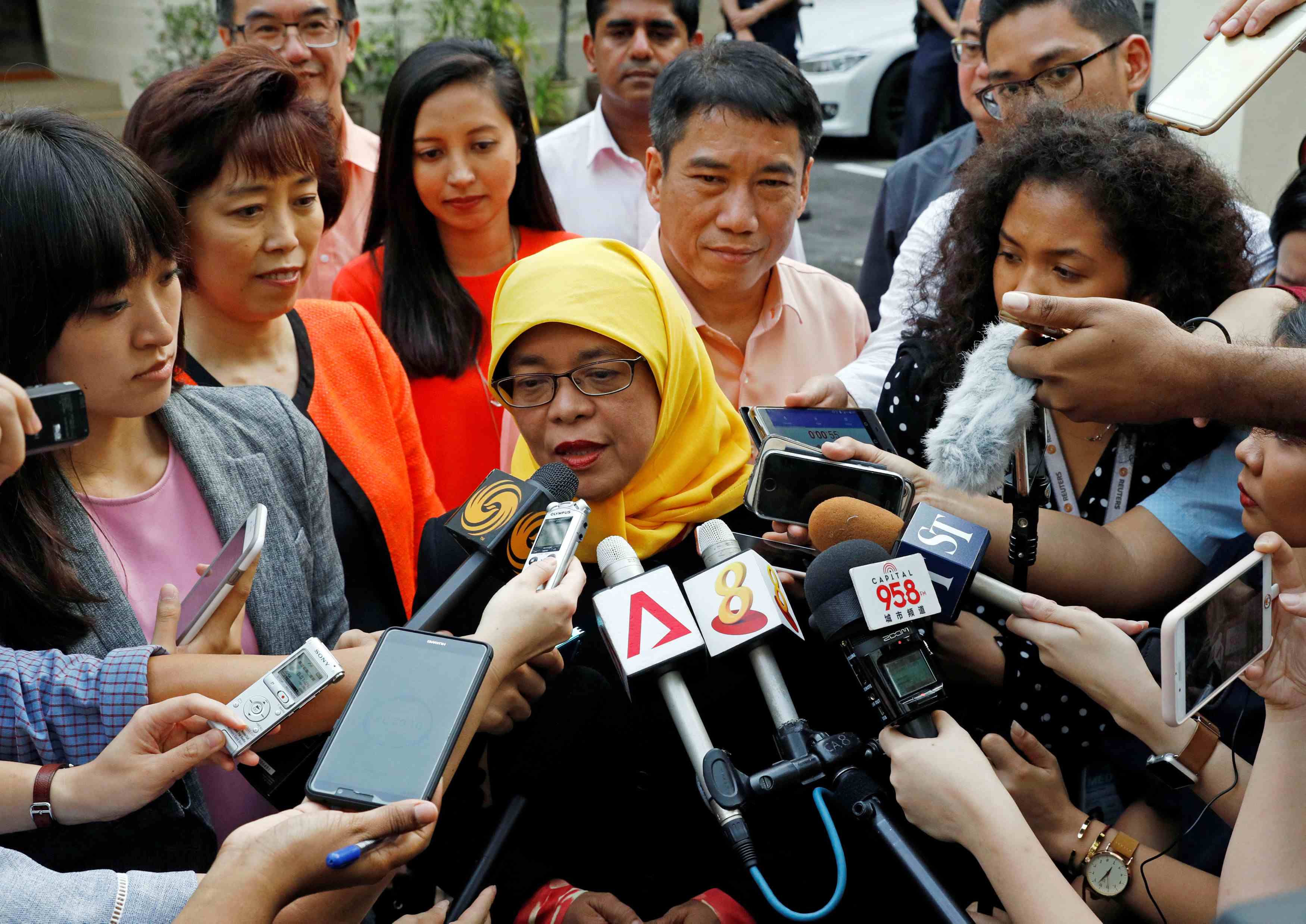
Politics
22:42, 12-Sep-2017
Anger in Singapore as no election for president
CGTN

Singaporeans on Tuesday poured scorn on the process to select their new president after an establishment figure was deemed the only eligible candidate, meaning no election will be held.
Halimah Yacob, a former speaker of parliament from the city-state's Muslim Malay minority, will be the first woman to hold the largely ceremonial role if, as expected, she is formally nominated to the presidency Wednesday.
But the 63-year-old will avoid an election originally slated for September 23, as others hoping to run against her were judged by authorities not to have met strict eligibility criteria.

Former speaker of Singapore's parliament, Halimah Yacob, arrives at the Elections Department after she was given the certificate of eligibility to contest the election by the Presidential Elections Committee in Singapore, September 11, 2017. /Reuters Photo
Former speaker of Singapore's parliament, Halimah Yacob, arrives at the Elections Department after she was given the certificate of eligibility to contest the election by the Presidential Elections Committee in Singapore, September 11, 2017. /Reuters Photo
Five people had expressed an interest in becoming president of the tightly-controlled, affluent nation of about 5.5 million people.
Two were disqualified as they were not Malay, the presidency was on this occasion reserved for members of the ethnic minority, while two Malay businessmen were disqualified as their companies were too small.
"All Singaporeans are unhappy that meritocracy and electoral fairness, core Singaporean values, have been eroded to fulfill perceived political goals," writer and political commentator Sudhir Thomas Vadaketh told AFP.
There was criticism of the process on social media, with Facebook user Hussain Shamsuddin commenting: "As a citizen of this democratic island nation, I'm deeply embarrassed."

Former speaker of Singapore's parliament, Halimah Yacob, speaks to the media at the Elections Department after she was given the certificate of eligibility to contest the election by the Presidential Elections Committee in Singapore, September 11, 2017. /Reuters Photo
Former speaker of Singapore's parliament, Halimah Yacob, speaks to the media at the Elections Department after she was given the certificate of eligibility to contest the election by the Presidential Elections Committee in Singapore, September 11, 2017. /Reuters Photo
"Don't call it an election if we Singaporeans can't vote," wrote Fazly Jijio Din on Facebook.
There was no immediate response from the government.
It is not the first time that a president has been chosen unopposed, and when there has been a vote, the establishment candidate has always won.
The president's role is largely that of a figurehead but the head of state does have some limited powers.
It was the first time that the presidency had been reserved for a particular ethnic group, as authorities seek to foster harmony in a multicultural society dominated by ethnic Chinese.
Singapore is one of the world's wealthiest and most stable societies but its political system is tightly controlled. The People's Action Party has been in power since self-rule was gained from the British in 1959.
Source(s): AFP

SITEMAP
Copyright © 2018 CGTN. Beijing ICP prepared NO.16065310-3
Copyright © 2018 CGTN. Beijing ICP prepared NO.16065310-3